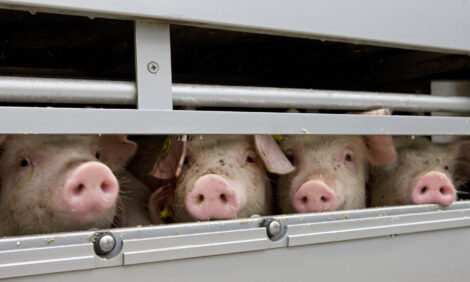



Scientists Target Improved Nutrition of Newly Weaned Pigs
CANADA - Scientists working on behalf of Swine Innovation Pork are exploring new feed processing methods designed to improve the nutritional value of rations fed to newly weaned pigs, writes Bruce Cochrane.As part of research being conducted on behalf of Swine Innovative Porc, scientists from across Canada are developing nutritional strategies for newly weaned pigs that will optimise performance right up to slaughter weight.
The goal is to formulate rations using locally produced grains and protein byproducts that will get the piglets off to a good start.
Dr Denise Beaulieu, a research scientist nutrition with the Prairie Swine Centre, explained that with newly weaned pigs, feed intake is a limiting factor.
Dr Denise Beaulieu-Prairie Swine Centre:
The gastrointestinal tract is limited, it's small and so we have to really get a lot of nutrients in a small package so we have to, for example, really balance carefully the energy and the amino acids and the protein very very carefully and in the proper ratios for the young pig.
If we don't have the ration formulated properly, it can't eat enough to get all of its nutritional needs so we really have to get all of its nutrients in a small package.
It's growing very very quickly and its growth is primarily protein, it's growing muscle tissue so we have to formulate with that in mind as well.
The other issues we have is weaning itself.
It's being removed from the sow where all it's had at that point in time is milk so it has to adapt to dry feed, it has to adapt to plant proteins, it has to adapt to a new environment without the sow.
It's a very very stressful few days post weaning and we have to formulate diets that are very very palatable a well.
Dr Beaulieu said scientists are evaluating hundreds of different combinations of feed ingredients and treatments and expect to know, by Christmas, which ones will be used in feeding experiments due to begin in 2016.








